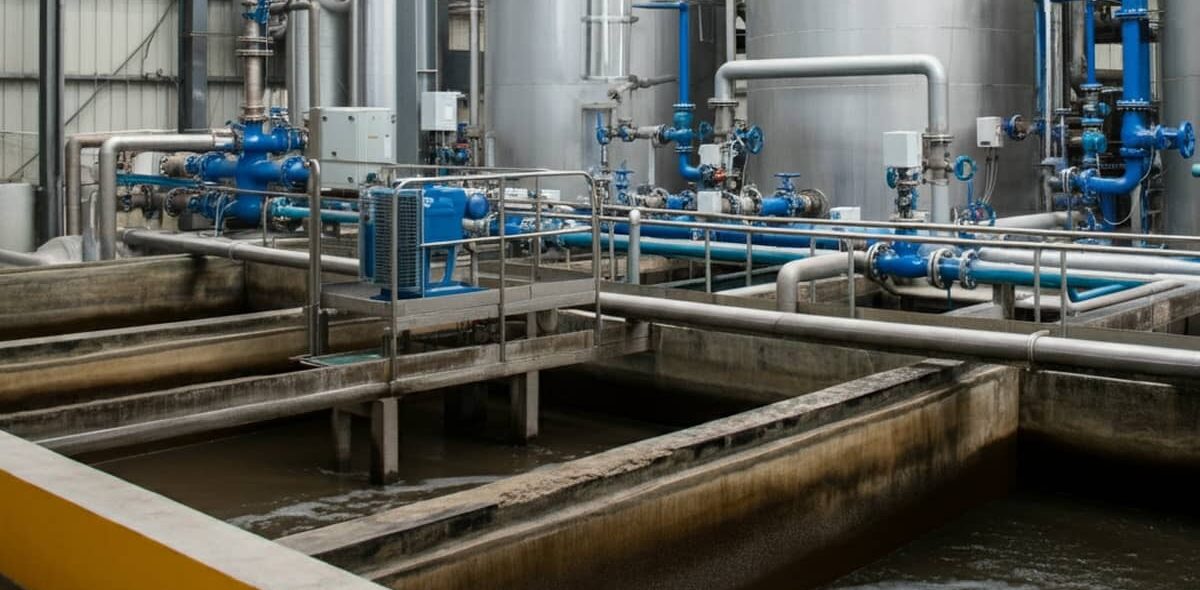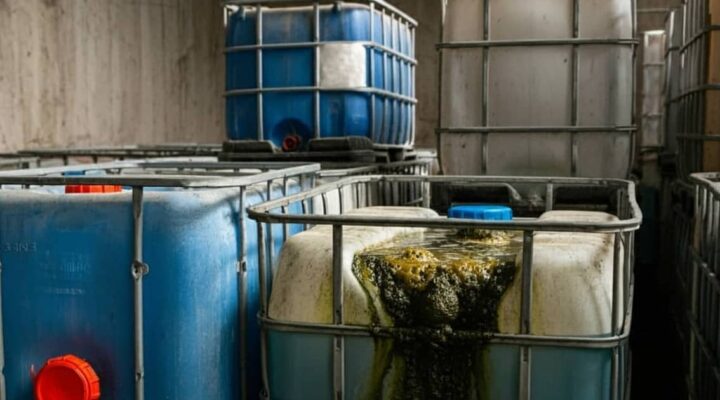Managing industrial wastewater effectively is crucial for ensuring compliance with environmental regulations, reducing operational risks, and maintaining a sustainable production process. Industries have several options for wastewater management, including setting up an in-house treatment plant, outsourcing the process to a licensed contractor, or employing a hybrid approach. Choosing the right method can lead to greater efficiency, reduced costs, and better environmental outcomes. Moreover, each approach offers unique benefits and challenges that must be carefully evaluated based on a business’s specific requirements and objectives.
This guide explores the pros and cons of each approach in detail, helping industries make an informed decision that aligns with their operational, financial, and environmental goals. Understanding the options available can also help industries optimize their wastewater management strategies, enhance sustainability, and ensure long-term compliance.
In-House Wastewater Treatment Plant
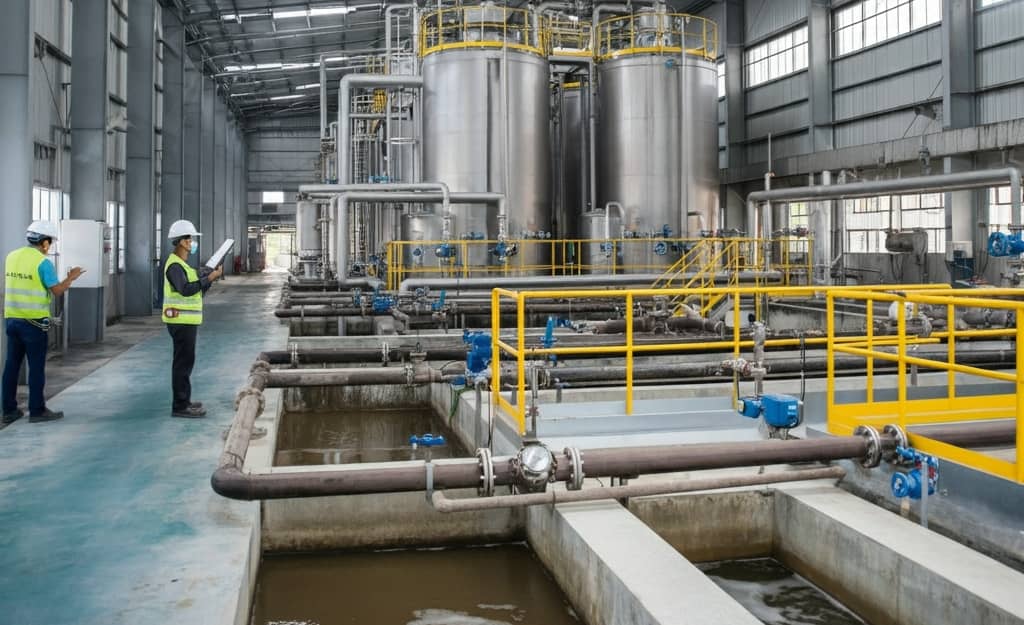
Managing industrial wastewater internally by setting up an in-house treatment plant provides businesses with complete control over the entire process. This approach allows industries to customize their treatment methods to fit specific needs, maintain flexibility in operations, and integrate wastewater management closely with overall production processes. However, it also requires significant investment and expertise to maintain compliance with environmental standards. Below are the pros and cons of managing wastewater with an in-house treatment plant.
Pros of In-House Treatment
- Greater Control Over Treatment: Having an in-house treatment plant allows industries to directly control the entire process, ensuring compliance with environmental standards and minimizing risks. With in-house control, businesses can also make adjustments to the treatment processes as needed, allowing them to adapt quickly to changes in production or regulatory requirements.
- Cost Savings in the Long Term: Although setting up an in-house treatment plant involves significant initial investment, it can result in cost savings in the long run, particularly for industries dealing with large volumes of wastewater. By managing treatment internally, companies can avoid paying continuous service fees to external contractors, which can add up significantly over time.
- Sustainability Opportunities: An in-house plant offers opportunities to reuse treated water for non-potable purposes within the facility, contributing to the company’s sustainability initiatives and reducing water consumption. Reusing treated water can help reduce the demand for fresh water, lower utility costs, and support the organization’s broader environmental goals.
Cons of In-House Treatment
- High Capital Investment: Establishing an in-house treatment plant requires a large initial investment in equipment, construction, and infrastructure. This upfront cost can be prohibitive for smaller businesses or those with limited capital resources.
- Ongoing Maintenance and Staffing Costs: Regular maintenance, operational expenses, staff training, and sludge disposal costs add to the ongoing costs of an in-house system. Proper disposal of sludge, which may involve transportation, treatment, or landfill costs, can significantly impact the overall expenditure of maintaining an in-house wastewater treatment plant. Skilled personnel are needed to operate and maintain the treatment plant, and this requires ongoing investment in training and salaries.
- Operational Risks: If issues arise during the treatment process, they could lead to non-compliance with regulations, resulting in fines or other liabilities. Technical failures, human errors, or unforeseen problems can interrupt treatment processes, posing a risk to both the environment and business operations.
Outsourcing to an External Licensed Wastewater Contractor
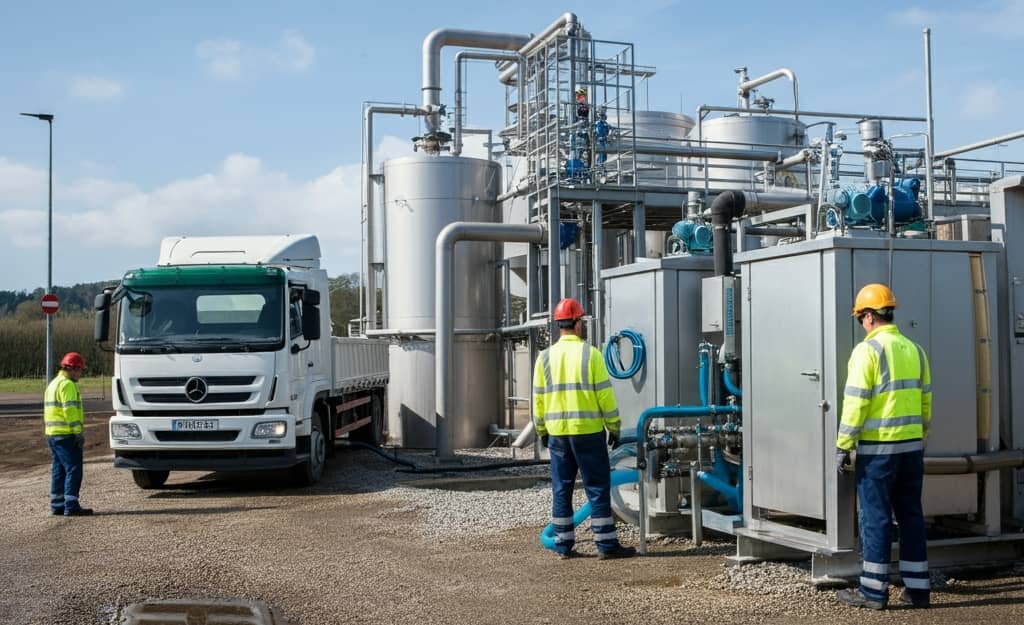
Outsourcing industrial wastewater management to a licensed contractor can be an efficient solution for businesses that lack the resources or expertise to handle the treatment process in-house. This approach allows industries to benefit from the specialized knowledge and infrastructure of experienced contractors, ensuring compliance with environmental regulations while avoiding the large upfront costs associated with building and maintaining treatment facilities. Below are the pros and cons of outsourcing wastewater management to an external contractor.
Pros of External Contractors
- No Upfront Infrastructure Costs: By outsourcing wastewater management to a licensed contractor, industries can avoid the substantial capital investment required for in-house treatment facilities. This makes outsourcing a more accessible option for businesses that do not have the resources for large capital expenditures.
- Expert Compliance Management: Licensed contractors are experts in wastewater treatment and understand local regulations, which helps ensure that wastewater is treated safely and legally. These contractors stay up-to-date with changes in environmental regulations, such as the recent Zero Discharge Policy (ZDP) launched by the Selangor State Government, which makes it challenging for businesses to upgrade their existing treatment plants due to regulatory changes. This expertise provides businesses with peace of mind regarding compliance.
- Flexibility: Using an external contractor provides flexibility, allowing businesses to handle varying wastewater volumes without the burden of managing infrastructure. Companies can easily scale their wastewater management needs by adjusting the services provided by the contractor, which is particularly useful for businesses with fluctuating production levels.
Cons of External Contractors
- Ongoing Cost Accumulation: Outsourcing wastewater management involves continuous payments, which may become costly over time, especially for high-volume producers. Depending on the pricing model, these costs can increase significantly during periods of high wastewater production.
- Limited Control: Industries have limited control over the treatment processes and may face challenges if the contractor’s schedule does not align with their operational needs. This lack of control can also make it difficult for businesses to ensure that their specific treatment standards are met.
- Dependency on Contractors: Relying on external contractors means that businesses may experience service disruptions during emergencies or if the contractor faces challenges. Any issues faced by the contractor, such as labor shortages or equipment breakdowns, can affect the continuity of the business’s wastewater management.
Hybrid Approach: In-House and External Contractor
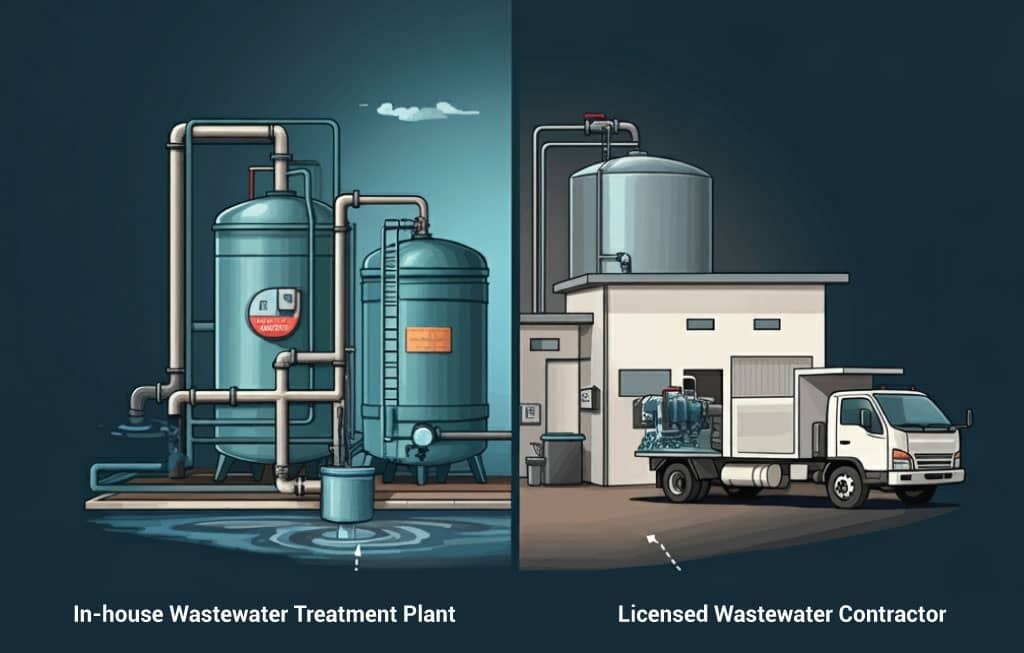
A hybrid approach combines the benefits of both in-house and outsourced wastewater management. It involves treating part of the wastewater in-house while outsourcing the remainder to a licensed contractor. This approach can be particularly useful during peak production periods or when dealing with specific types of waste that require specialized treatment. It offers industries the flexibility to manage core treatment internally while relying on external expertise for complex or high-volume needs.
Pros of a Hybrid Approach
- Cost and Operational Balance: A hybrid model offers a balance between managing costs and retaining control over core treatment processes. Businesses can achieve cost savings by treating a portion of the wastewater in-house while reducing the need for extensive infrastructure by outsourcing more complex treatment requirements.
- Flexibility and Risk Management: By treating some wastewater in-house and outsourcing the rest, companies can manage peak capacities more effectively while reducing the risk of overburdening internal infrastructure. This also allows for smoother handling of unexpected increases in production or new regulatory requirements.
- Reduced Staff and Maintenance Burden: Outsourcing specialized treatment needs reduces the workload on in-house staff and minimizes maintenance requirements. This allows the business to focus its internal resources on other core functions while still ensuring that wastewater treatment is handled efficiently.
Cons of a Hybrid Approach
- Complex Coordination: Managing both in-house processes and external contractors requires careful coordination, which may lead to increased complexity. Ensuring that both in-house and outsourced processes align properly can require additional management oversight and communication.
- Risk of Overlapping Responsibilities: Potential overlaps between in-house and external processes can create compliance gaps or inefficiencies if not managed effectively. Clear delineation of roles and responsibilities is necessary to avoid misunderstandings that could impact treatment quality or compliance.
Factors to Consider When Choosing the Right Approach
When deciding on the best wastewater management approach, several factors must be carefully evaluated to determine which option will provide the most benefits for your business. Each approach—in-house treatment, outsourcing, or a hybrid—comes with distinct advantages and challenges. The choice depends on the specific requirements of your operations, financial considerations, regulatory obligations, and the capacity to manage the treatment process efficiently. Below are key factors that industries should consider when making this decision.
- Volume and Type of Wastewater: The type and volume of wastewater generated by a facility can determine whether in-house treatment, outsourcing, or a hybrid approach is the most suitable. High volumes of complex wastewater may necessitate in-house treatment or a combination of both approaches.
- Budget Constraints: It’s essential to evaluate the capital expenditure and ongoing costs associated with each approach, keeping in mind long-term financial implications. Businesses must balance the upfront costs of in-house systems against the recurring costs of outsourcing to find the most cost-effective solution.
- Regulatory Compliance: Ensuring compliance with environmental standards is key—whether treatment is managed internally or through a contractor. The chosen approach should align with the company’s ability to meet strict regulatory requirements, including reporting and discharge standards.
- Operational Capacity: Industries should consider their ability to train and maintain a skilled workforce to handle in-house treatment if they choose that route. Operational capacity also includes the availability of internal resources and expertise to manage the treatment processes effectively.
Conclusion
Choosing between an in-house treatment plant, outsourcing to an external contractor, or adopting a hybrid approach depends on the unique needs of each business. Each option has its own set of pros and cons related to cost, control, flexibility, and risk. By evaluating the type of wastewater, budget constraints, regulatory requirements, and operational capacity, industries can make an informed decision that ensures compliance, efficiency, and sustainability.
For expert advice on wastewater management, consult Metahub. As a fully licensed wastewater expert by the DOE, we specialize in providing solutions for both outsourcing and hybrid approaches, tailored to meet your operational, financial, and compliance needs. By partnering with Metahub, businesses can effectively manage their wastewater while ensuring full compliance with environmental regulations and adopting sustainable practices for their operations. Explore the full list of approved scheduled wastes we manage or visit our Wastewater Disposal Solutions for more details on how we can assist your business.
Our Key Advantages
- Licensed to handle a wide range of scheduled wastes
- State-of-the-art wastewater treatment plant utilizes zero discharge technology, aligning with the Selangor Zero Discharge Policy and supporting your company’s sustainability goals
- Proven track record with nearly 20 years of experience and businesses in various industries
- End-to-end waste management solutions


